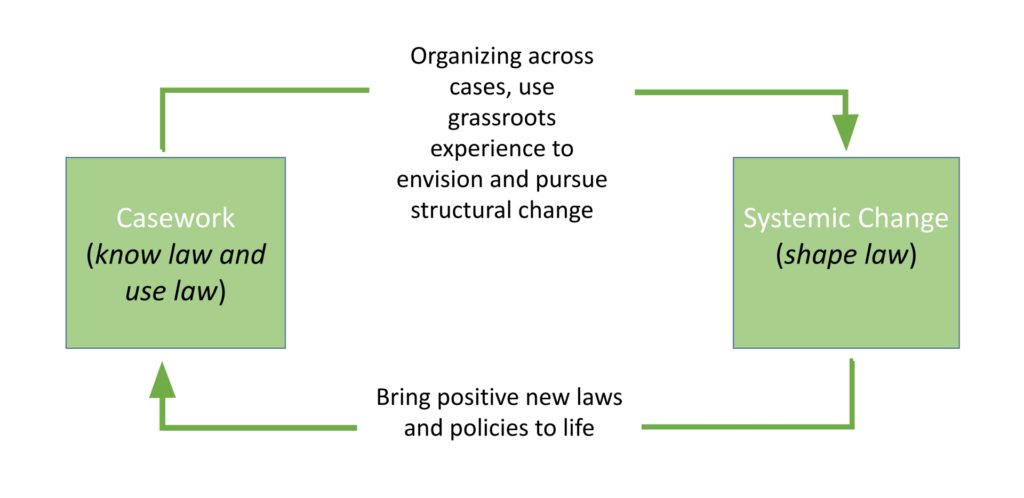How We Create Impact
In the countries where we work directly
1. Paralegals work with individuals and communities to solve problems at the grassroots.
Rather than treating affected people like victims requiring an expert service — ”I will solve this problem for you” — community paralegals build power among the people with whom they work. The remedies they secure improve the lives of hundreds of thousands of people every year.
2. Collectively, we draw on grassroots experience to advocate for changes that make the system better for everyone.
Paralegals track data on the process and results of every case. This data creates a detailed portrait of how systems are working in practice. Case data helps us—paralegals, communities, support teams from Namati and our partners—to identify which reforms are most necessary.
Everywhere we work, paralegals and communities have drawn on their casework to envision, organize around, and win improvements in rules and systems, including a better mechanism for enforcing sand-mining regulations in India, stronger social and environmental standards for businesses investing in Sierra Leone, and Myanmar’s first legal commitment to respect the customary land rights of ethnic minorities.
And the cycle continues…
Once reforms are adopted, paralegals educate their communities about the new legal provisions and use them to solve concrete problems. We call this the legal empowerment cycle: from grassroots casework (knowing and using law) to systemic change (shaping law) and back again. It represents a deeper version of democracy.
The Legal Empowerment Cycle

Through the Legal Empowerment Network
3. We learn from each other to get better.
We foster learning among network members, online and in-person. By sharing evidence, challenges, and lessons from practice, our legal empowerment community becomes more effective.
4. We strive to transform the policy environment for legal empowerment.
Network members advocate together for policies that protect grassroots justice defenders from harm, and that make legal empowerment central to the way societies respond to big problems, from inequality to environmental destruction to authoritarianism.
